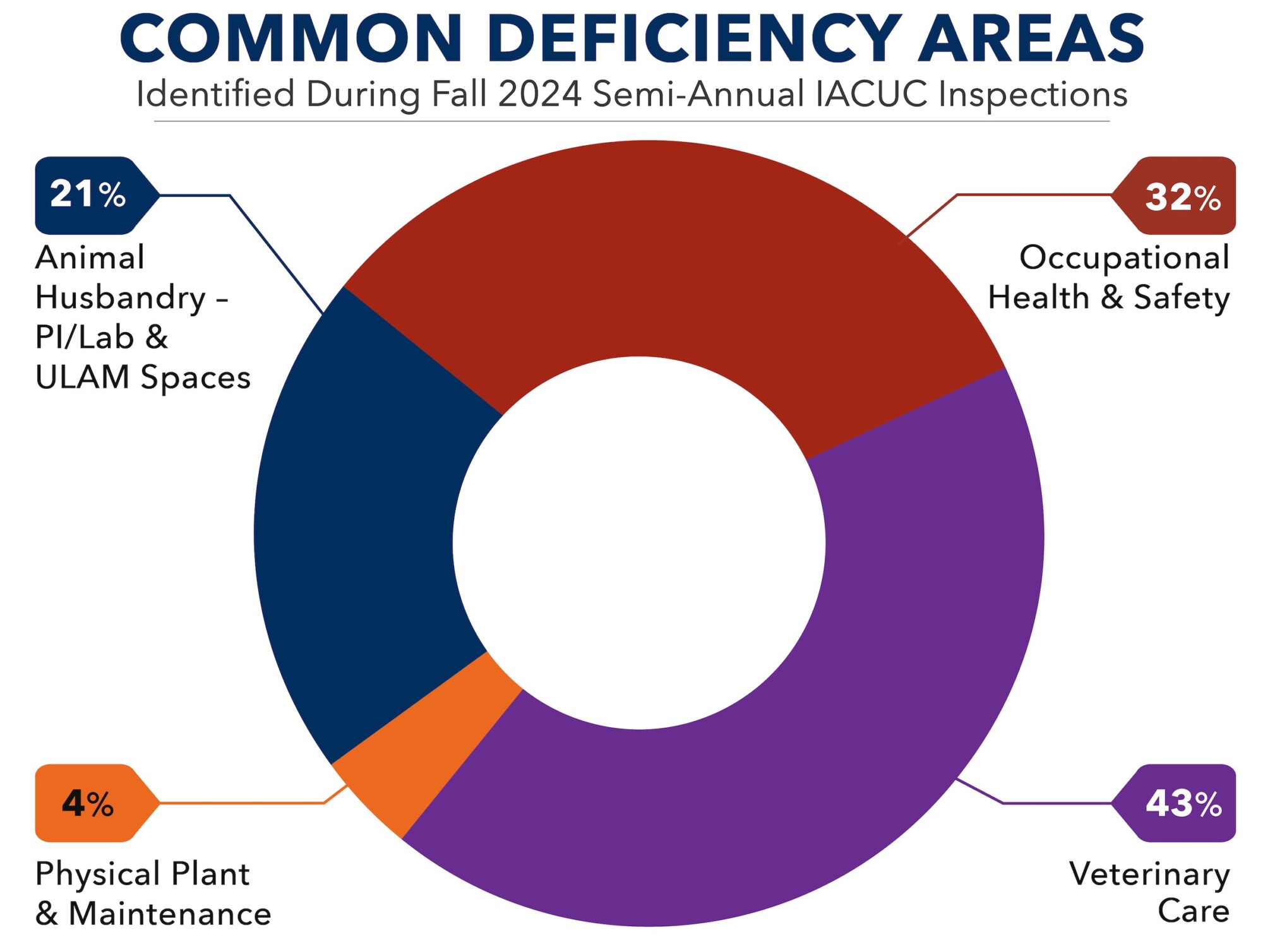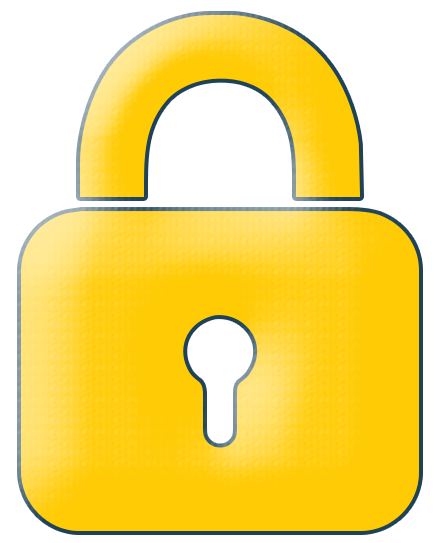
The Institutional Animal Care & Use Committee (IACUC) completed its latest round of semi-annual facility inspections in late September, which included piloting a new one-week condensed schedule.
This revised format more closely aligns IACUC processes with those used by external oversight bodies (e.g., AAALAC and the United States Department of Agriculture) and aims to reduce Study Team burden while ensuring that the IACUC’s regulatory compliance responsibilities are fulfilled.
Thank you to all members of the U-M animal care and use community for your patience and understanding as we work to implement this important programmatic change.
The next round of semi-annual IACUC facility inspections is scheduled to occur the week of March 10, 2025.
A more detailed facility inspection schedule will be released early next year.
Inspections will run throughout the week and include any animal rooms, surgical suite support spaces, and areas where procedures are conducted with animals.
In advance of Winter 2025 semi-annual facility inspections, please review and discuss the Fall 2024 inspection findings and suggestions for improvement outlined below with all members of your laboratory staff – including any students – who conduct research involving animals.
Common Deficiency Areas** Identified During Fall 2024 Inspections:
Examples:
- Post-operative monitoring sheets/records were incomplete
- Expired materials, drugs, and substances found
- Materials and substances not appropriately labeled
- Anesthetic machines or anesthetic canisters were not properly maintained
Suggestions for Improvement:
- Download and print post-operative record templates
- Download the Quick Reference Sheet: Avoiding Common Mistakes When Completing Surgical Records for Mice and Rats

- Create and maintain a regular schedule for reviewing substance expiration dates
- Review the Quick Reference Sheet: Managing Expired Drugs & Supplies
 for best practices on developing a system to monitor expired materials
for best practices on developing a system to monitor expired materials - Ensure all materials/substances are labeled and dated, if necessary, upon arrival/order (review the Policy on the Use, Storage, and Expiration of Substances, Agents, and Medical Materials Used in Animals for more information)
- Remove expired substances or materials from circulation/use or appropriately label for non-recovery use only (as outlined by the Policy on the Use, Storage, and Expiration of Substances, Agents, and Medical Materials Used in Animals)
- Review the Policy on Maintaining Anesthetic Machines and Vaporizers, which states that anesthetic machines/vaporizers must be manually assessed at yearly intervals to ensure high-quality anesthesia for research animals and a safe working environment for personnel
- Utilize ULAM services for quarterly anesthetic machine servicing and certification
Examples:
- Compressed gas cylinders not properly stored
- Eyewash stations not properly maintained
- Engineering controls (BSC, fume hoods, LEV) not certified annually
- Improper use of anesthetic equipment
Suggestions for Improvement:
- Download and review EHS Compressed Gas Guidelines and SOPs, which outline that storage of compressed gas cylinders requires sturdy chains or straps secured to a wall or cabinet, and/or use of a cylinder stand
- Eyewash stations (flushed at least monthly) and safety showers (visually inspected at least weekly) should be monitored at required intervals, with testing appropriately documented
- Contact EHS at (734) 647-1143 for assistance with annual hood certification. Additional guidance is also available on the EHS website
Examples:
- Sanitation practices for all lab equipment that comes into direct contact with animals were not established and/or equipment was soiled
- Expired and/or unlabeled animal feed was found
Suggestions for Improvement:
- Download the Quick Reference Sheet: Equipment Cleaning & Sanitization Guidance to familiarize yourself with the procedures and expectations for equipment sanitization and testing
- Mill and expiration dates for animal feed should be routinely checked to ensure that feed is in-date. Any secondary storage containers should also be clearly labeled with content information and expiration/mill date
- Contact your facility’s ULAM Husbandry Supervisor
 with questions or concerns about proper labeling practices for animal feed
with questions or concerns about proper labeling practices for animal feed
Examples
- Walls, floors, or furniture required repair
Suggestions for Improvement:
- Work with your ULAM Husbandry Supervisor
 and/or Plant Operations staff to address any service or facility repairs in a timely manner
and/or Plant Operations staff to address any service or facility repairs in a timely manner - Select one or two lab members to regularly review, and be responsible for, housekeeping items/tasks
**Percentages above represent the number of overall deficient findings in a given area (e.g., Physical Plant & Maintenance – 4% denotes that, of the total findings identified during Fall 2024 semi-annual facility inspections, 4% were related to physical plant and maintenance).
Questions?
Questions or concerns about semi-annual IACUC facility inspections, or any of the items outlined above, should be directed to the Animal Care & Use Office at [email protected] or (734) 763-8028.
![]() Links marked with a lock icon can only be accessed using valid U-M login credentials.
Links marked with a lock icon can only be accessed using valid U-M login credentials.